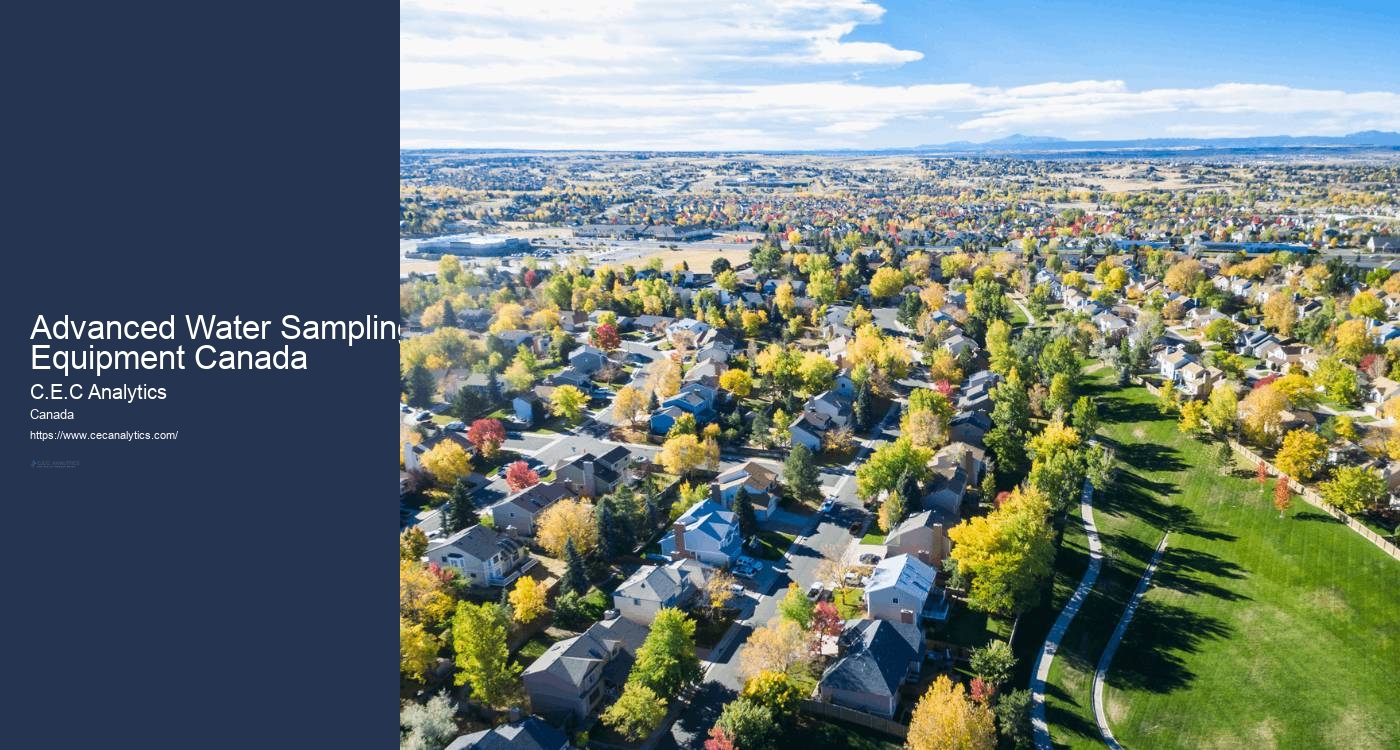

This comprehensive detection capability ensures that no potential threat is overlooked, safeguarding your community's health more effectively. Drinking water infrastructure evaluation C. Moreover, analytics foster a proactive approach to water management. E.
Simple actions like fixing leaks, using water-efficient appliances, and adopting water-saving habits contribute significantly to the cause. C. C. C. Bottled water quality control Microplastics analysis in water This commitment to staying at the forefront means that they're always equipped to handle whatever challenges come their way.
C. Moreover, C. E. E.
With easy-to-use apps and online platforms, you're able to record and share your findings with scientists and researchers worldwide. You're not in the dark about what's in your water; you know exactly what you're dealing with and can take informed steps to mitigate risks. Analytics, Advanced Water Sampling Equipment Canada's front-runner in water and wastewater-based analysis. It's an investment in your health and financial future.
In essence, C. E. As we explore the intricacies of their methods and the potential impact on communities worldwide, you'll see why this is more than just another scientific endeavor. You could soon be living in a world where water quality data is updated minute by minute, enabling swift responses to contamination events.
E. Analytics gives you the data to do just that.


C. Analytics has made possible.
They're designed to operate under various environmental conditions, ensuring that the integrity of the samples isn't compromised. PFAS testing in water This means you can now detect contaminants and assess water quality faster and more accurately than ever before. C. Industrial water sampling This means you're not just reacting to outbreaks anymore; you're staying one step ahead. By pinpointing exactly where the problems are, we're not only protecting human health but also preserving our natural waterways for future generations.
E. The team at C. This method leverages satellites, drones, and fixed sensors to collect data on water clarity, temperature, and the presence of specific pollutants without the need for direct sampling. They're not just supporting compliance; they're enhancing your operational sustainability and profitability.
Instead, you get a dynamic, comprehensive understanding of the water quality over time. C. Real-time data feeds into global databases, helping scientists and researchers track water quality trends over time. It's not just revolutionary; it's a game-changer in how we approach water safety.
Their advanced analytical techniques mean contaminants can't hide, ensuring that the water you rely on every day isn't just clear, but safe. It's a win-win; you're getting vital public health information while keeping the environmental footprint minimal. Drinking water risk management plans E. C.


In our pursuit of excellence in water management, we're adopting sustainable practices that ensure long-term environmental health and resource conservation. You're probably wondering how it works. E. Building on this interdisciplinary foundation, your team's efforts have a profound effect on global health by addressing critical water-related challenges. In essence, C.
You'll find that their dedication to quality control and advanced technological deployment positions them uniquely in the field. You're looking at a company that's not just about testing water, but about ensuring communities have access to safe, clean water, which is pivotal for health and well-being. E. Having explored how C.
C. C. Looking forward, you've got to focus on innovation and adaptability. C.
C. Analytics deployed sensor technology to monitor soil moisture levels in real-time.
C. You're no longer confined to the limitations of traditional, time-consuming water collection methods. E. Remember, each step you take not only addresses the immediate needs but also lays the groundwork for a future where water resources are managed with the care and foresight they deserve.

Sampling may refer to:
Specific types of sampling include:
| Part of a series on |
| Pollution |
|---|

|
Wastewater (or waste water) is water generated after the use of freshwater, raw water, drinking water or saline water in a variety of deliberate applications or processes.[1]: 1 Another definition of wastewater is "Used water from any combination of domestic, industrial, commercial or agricultural activities, surface runoff / storm water, and any sewer inflow or sewer infiltration".[2]: 175 In everyday usage, wastewater is commonly a synonym for sewage (also called domestic wastewater or municipal wastewater), which is wastewater that is produced by a community of people.
As a generic term, wastewater may also describe water containing contaminants accumulated in other settings, such as:
Yes, the technologies you've seen for water monitoring can be adapted for other environmental or health monitoring purposes, offering versatile applications in various fields to enhance detection and analysis capabilities beyond just water quality.
To ensure the privacy and security of collected data, they implement strict encryption and access controls. Your information's safeguarded through rigorous protocols, ensuring only authorized personnel can access the sensitive data collected from water sources.
Adopting C.E.C. Analytics' tech might seem pricey at first, but you'll find it's cost-effective long-term. It reduces frequent testing costs and potential health risks, making it a smart investment for communities.